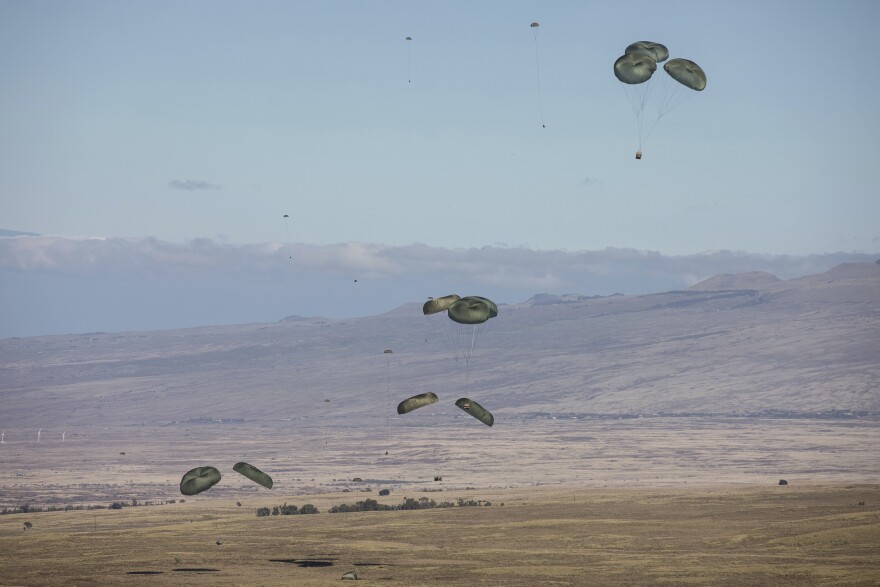Hawaiʻi's land board rejected the Army’s environmental impact statement to retain Pōhakuloa Training Area land on Hawaiʻi Island used for live-fire training.
The state Board of Land and Natural Resources voted Friday after hours of discussion and testimony, including from many in the Native Hawaiian community who cited environmental destruction and cultural desecration.
Board Chair Dawn Chang later called the vote “one of the hardest decisions that I have had to make.”
Chang said the decision was based on the adequacy of the environmental review and not on the merits of whether the Army should conduct training in Hawaiʻi. No decision has been made on the Army's long-term lease request.
The Army’s lease for 23,000 acres is set to expire in 2029.
The Army, noting that the environmental impact statement was created with community input, said in a statement that it was observing a 30-day waiting period. After that, the Army will determine how much land it will seek to retain.

Opponents of the Army's use said the environmental review was done improperly and ignored damages and concerns.
Board member Kaiwi Yoon said there's no way the Army can benefit the area's cultural and natural resources.
“ There is no warrior, or koa, that would say firing guns and missiles and rockets into a natural and cultural resource environment is good for that cultural and natural resource environment," Yoon said. "I don't care what study, you know, we wanna do, it's never going to be good. All we can do is mitigate and minimize the impact, but the answer will always be no.”
Those in favor mostly said the training area is important for maintaining U.S. national security in the region.
The Army calls the Pōhakuloa Training Area the “premier” combat training grounds in the Pacific theater for all U.S. ground forces, including the Army, Marines, Navy and Air Force.

The Army is seeking to return nearly 3,300 acres of leased lands back to the state and retain 19,700 acres to sustain training, the Army statement said. The Army paid $1 in its original lease to occupy the land.
In a statement, Gov. Josh Green acknowledged that the rejected environmental impact statement presents challenges but doesn't end the conversation: "This is a time for collaboration, not division, as we seek balanced solutions that honor both our heritage and our future.”
The vote was a “pleasant surprise” to activists who are concerned that military training in Hawaiʻi harms island aquifers, sensitive wildlife and ancient Hawaiian burials, said Healani Sonoda-Pale, a Native Hawaiian activist. It was unexpected because of the military's economic stronghold on Hawaiʻi, she said.
“Friday's vote is a real shift,” Sonoda-Pale told The Associated Press on Monday. “I think the shift here happened because of the Red Hill spill. The military lost a lot of trust and respect."





